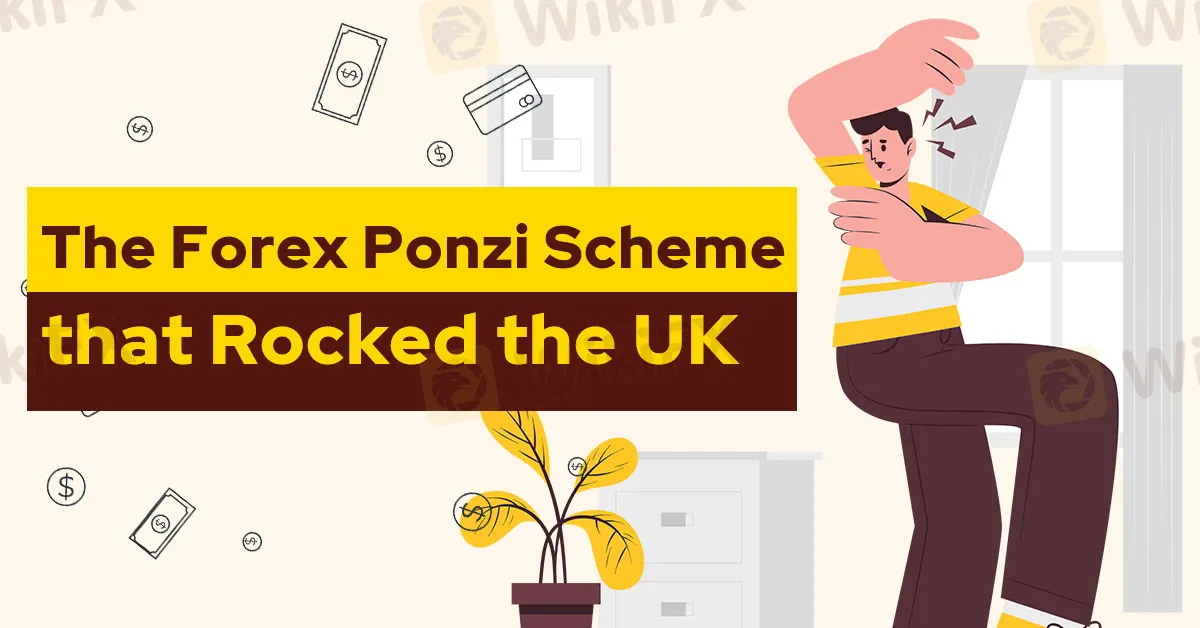简体中文
繁體中文
English
Pусский
日本語
ภาษาไทย
Tiếng Việt
Bahasa Indonesia
Español
हिन्दी
Filippiiniläinen
Français
Deutsch
Português
Türkçe
한국어
العربية
The Forex Ponzi Scheme that Rocked the UK
Abstract:In recent years, the forex market has become a hotbed for fraudulent activities, and the United Kingdom has not been immune to these scams. One particularly notorious case that sent shockwaves through the UK financial sector was the emergence of a massive forex Ponzi scheme that defrauded unsuspecting investors of millions of pounds.

In recent years, the forex market has become a hotbed for fraudulent activities, and the United Kingdom has not been immune to these scams. One particularly notorious case that sent shockwaves through the UK financial sector was the emergence of a massive forex Ponzi scheme that defrauded unsuspecting investors of millions of pounds.
The Forex Ponzi Scheme Unveiled
The scheme was orchestrated by a group of individuals who posed as reputable forex traders, promising lucrative returns on investment. They claimed to have a secret strategy that allowed them to consistently profit from the volatile forex market. Their enticing pitches lured in investors from various backgrounds, including retirees, small business owners, and even experienced traders looking to diversify their portfolios.
Investors were told that their funds would be pooled together and invested in the forex market, with the promise of substantial returns. Initially, some investors did receive profits, further building trust in the operation. However, these payouts were merely a facade to attract even more investors.
As more people joined the scheme, the operators used funds from new investors to pay returns to earlier participants, creating the classic structure of a Ponzi scheme. The ruse continued until the scheme collapsed, leaving a trail of financial devastation in its wake.
The Fallout and Lessons Learned
When the scheme eventually unraveled, many investors were left with significant financial losses. Authorities launched investigations into the fraudulent operation, and some of the perpetrators were apprehended and subsequently faced legal action.
This incident serves as a stark reminder of the need for vigilance and due diligence in the forex market. Investors should always conduct thorough research and verify the legitimacy of any forex trading opportunity. One valuable resource for checking the authenticity of forex brokers and platforms is WikiFX.
How WikiFX Can Help
WikiFX is a comprehensive platform that provides vital information about forex brokers and their operations. It offers a database of verified brokers, user reviews, and regulatory status, allowing traders to make informed decisions about where to invest their hard-earned money.
By visiting WikiFX's website (www.wikifx.com), investors can access detailed profiles of forex brokers, including their regulatory licenses, trading conditions, and user feedback. This valuable resource can help traders steer clear of fraudulent schemes and make informed choices in the complex world of forex trading.
In the wake of the UK's forex Ponzi scheme, it's clear that having access to reliable information is crucial for investors to protect themselves from scams. WikiFX is committed to providing the transparency and insight needed to navigate the forex market safely and confidently.

Disclaimer:
The views in this article only represent the author's personal views, and do not constitute investment advice on this platform. This platform does not guarantee the accuracy, completeness and timeliness of the information in the article, and will not be liable for any loss caused by the use of or reliance on the information in the article.
Read more

Malaysian Man Loses RM113,000 in Foreign Currency Investment Scam
A 57-year-old Malaysian man recently fell victim to a fraudulent foreign currency investment scheme, losing RM113,000 in the process. The case was reported to the Commercial Crime Investigation Division in Batu Pahat, which is now investigating the incident.

FCA Alerts Traders to New List of Unregulated and Clone Brokers
Protect your investments! Learn about unregulated firms flagged by the FCA and discover how WikiFX helps traders avoid scams and choose legitimate brokers.

Google Warns of New Deepfake Scams and Crypto Fraud
Google exposes deepfake scams, crypto fraud, and app cloning trends. Learn how to spot these threats and safeguard your data with expert tips and advice.

Former Director Sentenced for Share Disclosure Breach
Former Copper Strike director convicted for undisclosed shares. Sentenced to 6 months in jail, fined $2,000, and banned from managing companies for 5 years.
WikiFX Broker
Latest News
What Makes Cross-Border Payments Easier Than Ever?
Trader Exposes Unethical Practices by STP Trading
Italian Regulator Warns Against 5 Websites
Currency Calculator


